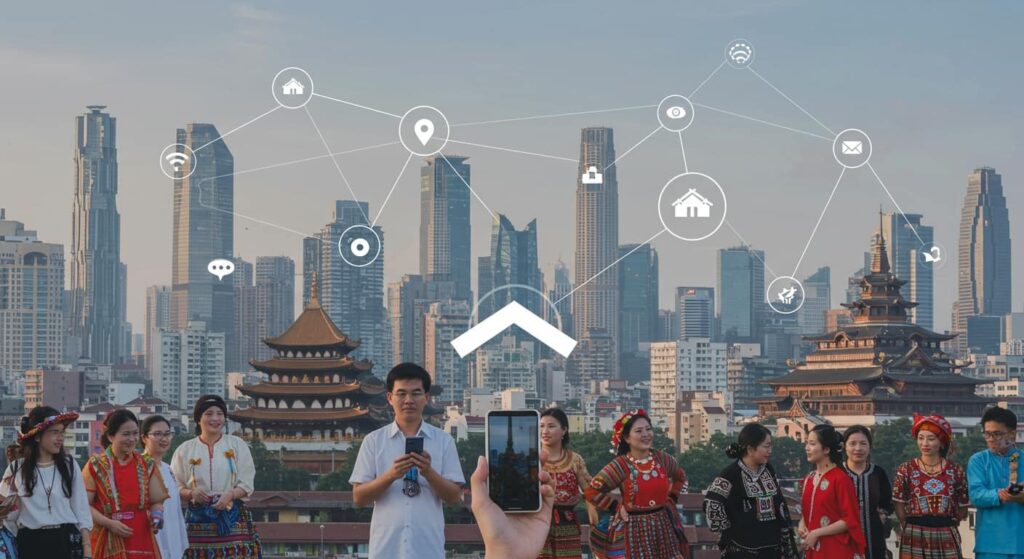Globalization—the increasing interconnectedness of countries through trade, technology, travel, and communication—has transformed how people live, work, and interact. While it has brought many benefits such as economic growth, faster communication, and cross-cultural exchange, it has also deeply influenced cultural identity. Cultural identity refers to the shared language, traditions, values, and customs that shape a group’s sense of belonging. Globalization can strengthen, reshape, or even threaten these cultural ties. Understanding its impact helps us appreciate the balance between global influence and local traditions.
Promotes Cultural Exchange
One of the most positive effects of globalization is the exchange of ideas, traditions, and art forms. People around the world can now experience different cuisines, music, fashion, and languages. This cultural blending can increase understanding, reduce prejudice, and enrich personal identity by allowing individuals to adopt diverse influences.
Increases Cultural Awareness
Globalization makes it easier for people to learn about other cultures through media, education, and travel. This awareness encourages openness, empathy, and cross-cultural respect, helping individuals understand both the uniqueness and universality of human experiences.
Challenges Traditional Practices
While globalization introduces new ideas, it can also lead to the decline of traditional customs. As global trends become more popular, local traditions—like folk art, rituals, or native languages—may lose their relevance, especially among younger generations. This can weaken a culture’s unique identity over time.
Influences Language and Communication
Globalization has made English a dominant global language, especially in business, media, and education. While this helps global communication, it also puts pressure on local languages, many of which are at risk of disappearing. Losing a language can mean losing part of a culture’s history and way of thinking.
Shapes Youth Identity
Young people, through social media and entertainment, are heavily exposed to global trends and lifestyles. While this expands their worldviews, it may also lead to identity confusion or a preference for foreign cultures over their own. Finding a balance between global influence and local pride is a challenge for many youth today.
Encourages Hybrid Identities
Globalization allows individuals to form blended or hybrid identities. A person can be rooted in their cultural heritage while embracing global influences in music, clothing, language, or values. This fusion creates new ways of self-expression and reflects the modern world’s complexity.
Causes Cultural Homogenization
One concern is the spread of a dominant global culture, often shaped by Western or corporate values. This can lead to a loss of cultural diversity, where cities, fashion, food, and entertainment start to look the same across the globe, reducing the richness of local cultures.
Boosts Cultural Pride and Revival
Interestingly, globalization has also sparked a renewed interest in preserving local traditions. As people realize the risk of losing their culture, there’s a stronger effort to protect native languages, celebrate heritage, and promote traditional arts. Global platforms can even be used to showcase these cultures to the world.
Impacts Cultural Identity in Diaspora Communities
For immigrants and diaspora groups, globalization offers ways to stay connected to their cultural roots through digital media, cultural events, and online communities. At the same time, it also influences how these communities blend with their new environments, creating unique multicultural identities.
Economic Influence on Cultural Expression
Globalization affects how cultures are marketed and consumed. Traditional crafts, music, or rituals might be commercialized for tourism or profit, sometimes altering their original meaning. While this can bring economic benefits, it raises questions about authenticity and respect for cultural values.
Conclusion
Globalization has a powerful impact on cultural identity—both enriching and challenging it. It opens doors to global understanding and creativity, but it also risks weakening the uniqueness of individual cultures. The key is balance: embracing the benefits of a connected world while preserving the traditions, languages, and values that define who we are. Cultural identity doesn’t have to be lost—it can evolve, adapt, and thrive in the global age.

